Chef Babette (PART 1)
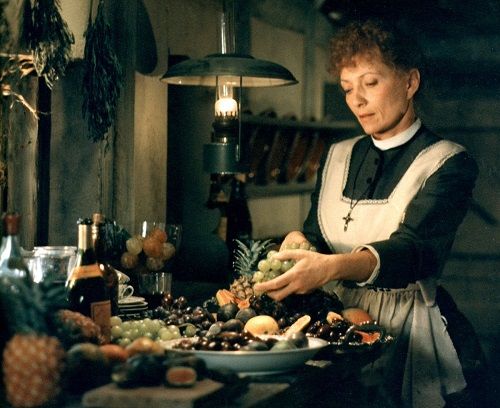
(babette09.jpg)

(diane02.gif)
Kato... have you recently met Chef Babette in town?

(kato3.gif)
What makes you think so?
...'Cause you've pasted her photo in the above.
Unfortunately, I haven't met her in person.
Are you saying, Kato, you've met her in your dream---if not a nightmare?
No, not in my dream, but in a movie.
So, Kato, you've watched quite a few movies since you wrote the last article in English, huh?
Yes, I have.


(lib71219a.png+lib71219b.png)
■"Actual Page"

So, you've watched 1,789 movies in Vancouver Public Library, huh?

Yes, I have.
How come you've watched so many movies? Are you challenging the Guinness Book of World Records?
Oh no, I'm just a flick maniac.
So tell me, Kato, which one of the above movies you met Chef Babette in?
It is the following movie.
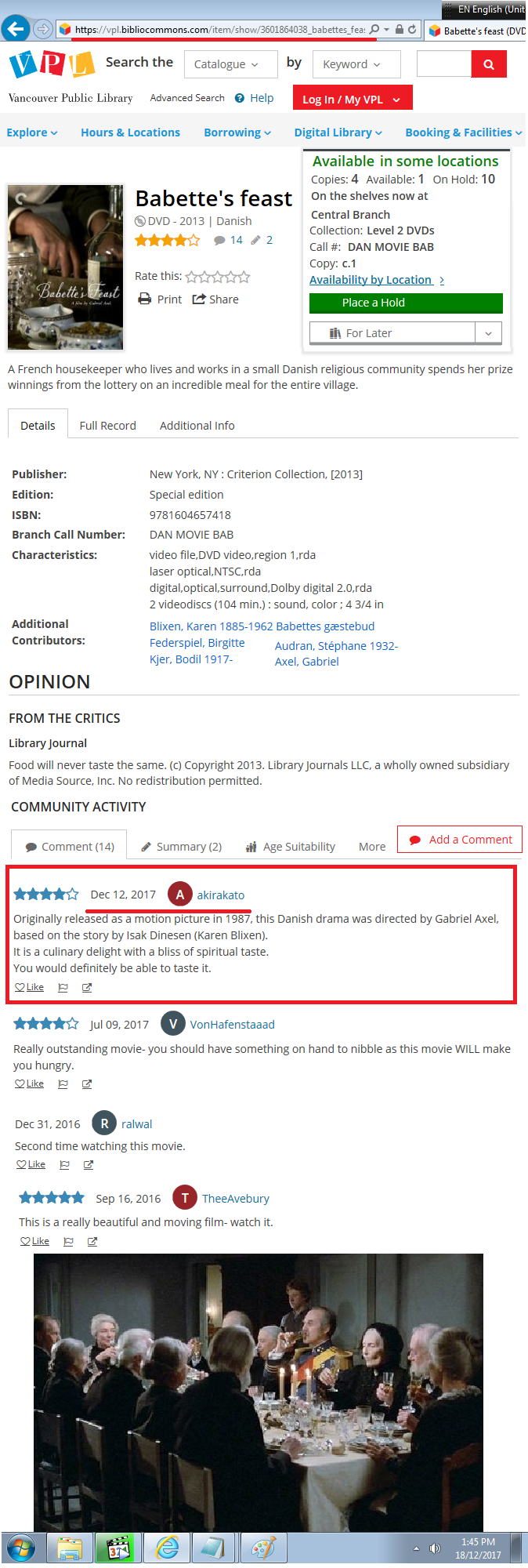
(lib71218a.png)
■"Enlarge"
■"Actual Page"

I see... So Chef Babette is a heroine in the above flick, huh?

That's right.
Kato, tell me about it.
Actually, the above movie is based on a short story written by the following Danish woman.
Baroness Karen von Blixen-Finecke
(17 April 1885 – 7 September 1962)
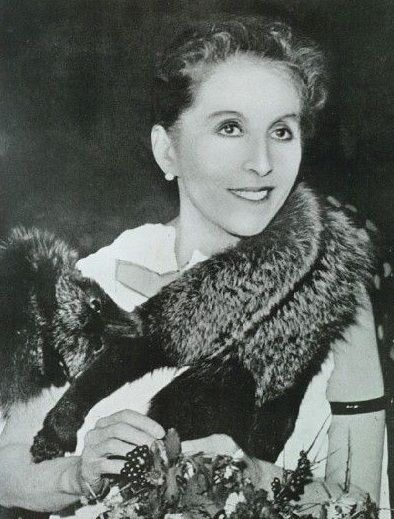
(blixen01.jpg)
She was a Danish author who wrote works in Danish and English.
She is best known under her pen names Isak Dinesen, used in English-speaking countries, and Tania Blixen, used in German-speaking countries.
She also published works using the aliases Osceola and Pierre Andrézel.
Blixen is best known for Out of Africa, an account of her life while living in Kenya, and for one of her stories, Babette's Feast, both of which have been adapted into Academy Award-winning motion pictures.
She is also noted, particularly in Denmark, for her Seven Gothic Tales.
Blixen was considered several times for the Nobel Prize in Literature.
Karen Blixen and her husband (Bror Blixen) were quite different in education and temperament, and Bror Blixen was unfaithful to his wife.
She was diagnosed with syphilis toward the end of their first year of marriage in 1915.
According to her biographer Judith Thurman, she contracted the disease from her husband.
She returned to Denmark in June 1915 for treatment which proved successful.
Although Blixen's illness was eventually cured (some uncertainty exists), it created medical anguish for years to come.
By 1919, the marriage had run into serious difficulties, causing her husband to request a divorce in 1920.
Against her wishes, the couple separated in 1921, and were officially divorced in 1925.
Bror Blixen was dismissed as the farm manager by Aage Westenholz, chair of the Karen Coffee Company, and Karen Blixen took over its management in 1921.
The most famous story is "Babette's Feast", about a chef who spends her entire 10,000-franc lottery prize to prepare a final spectacular gourmet meal.
The story evaluates relationships and examines whether the austere but charitable life led by the sisters, in adherence to an ideal, is less true to faith than the passionate gift from the heart of their housekeeper.
The story was reproduced in a film directed and written by Gabriel Axel, which was released in 1987, and won the Best Foreign Film Oscar in 1988.
In 1959, Blixen made her only trip to the United States.
It was an extended trip spanning from January to April, and while the purpose was to complete a series of educational films and discussions for the Ford Foundation and Encyclopædia Britannica, Blixen intended to enjoy herself.
She was the feature of a Life Magazine article in the 19 January 1959 edition and attended two Broadway openings.
Feted by the well-to-do of New York society, Blixen was invited to dine with socialites Babe Paley and Gloria Vanderbilt.
She was photographed by Richard Avedon and Cecil Beaton; the guest of John Steinbeck, who hosted a cocktail party in her honor; and serenaded by Maria Callas.

(stein01.gif)
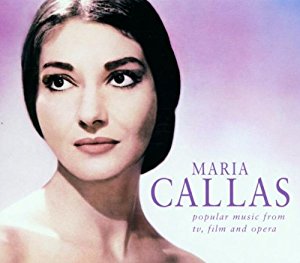
(callas01.jpg)
Nobel laureate Pearl Buck and poets e. e. cummings and Marianne Moore came to see her, as well.
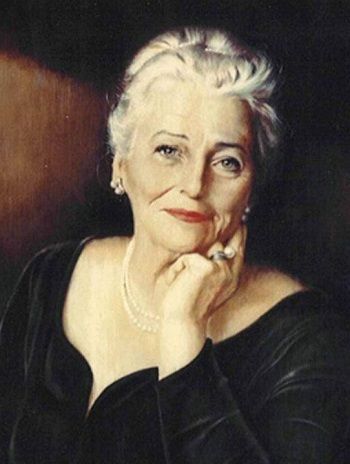
(buck90.jpg)
Pearl Buck
When Blixen expressed a desire to meet Marilyn Monroe, the author Carson McCullers arranged a meeting with Monroe and her husband, the playwright Arthur Miller.
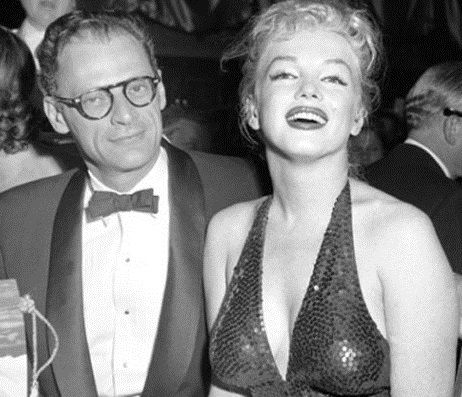
(monroe68.jpg)
Marilyn Monroe & Arthur Miller
SOURCE: "Karen Blixen" Wikipedia

Karen contracted syphilis from her husband, huh?

Unfortunately yes, she did.
So, did Chef Babette contract the disease as well?
Oh no, the above movie has nothing to do with syphilis.
Then how come you jotted down her illness?
...'Cause I want you to know that Karen Blixen experienced so many painful yet colorful events that she came up with a marvellous and spiritual story about Chef Babette.
Tell me, Kato, how it goes.
Alright, it goes like this:
Babette's Feast
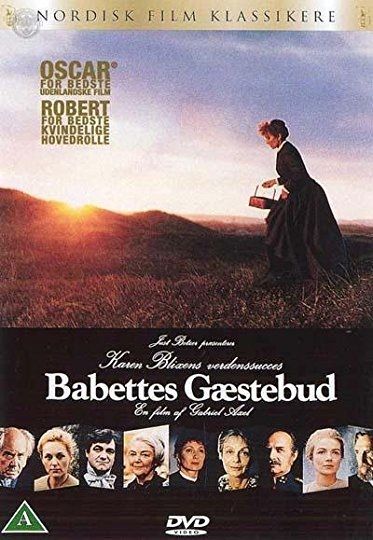
(babette08.jpg)
The elderly and pious Protestant sisters Martine (Birgitte Federspiel) and Philippa (Bodil Kjer) live in a small village on the remote western coast of Jutland in 19th-century Denmark.
Their father was a pastor who founded his own Pietistic conventicle.
With their father now dead and the austere sect drawing no new converts, the aging sisters preside over a dwindling congregation of white-haired believers.
The story flashes back 49 years, showing the sisters in their youth.
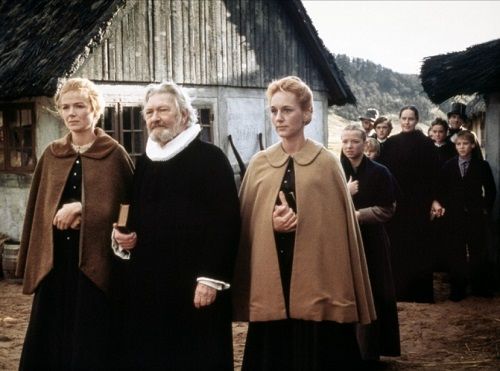
(babette06.jpg)
The beautiful girls have many suitors, but their father rejects them all, and indeed derides marriage.
Each daughter is courted by an impassioned suitor visiting Jutland – Martine by a charming young Swedish cavalry officer, Lorens Löwenhielm.
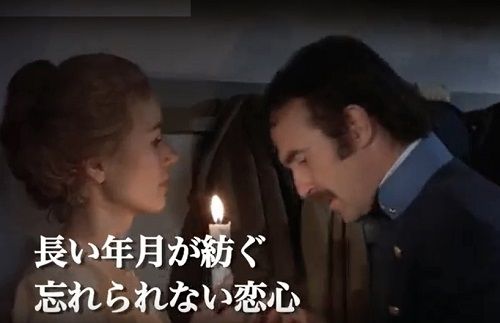
(babette13.jpg)
Philippa is courted by a star baritone, Achille Papin, from the Paris opera, on hiatus to the silence of the coast.
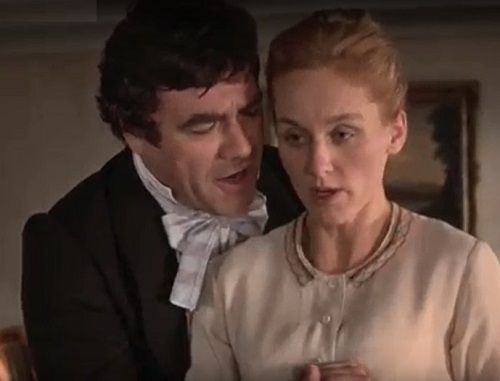
(babette12.jpg)
Both sisters decide to stay with their father and spurn any life away from Jutland.
Thirty-five years later, Babette Hersant (Stéphane Audran) appears at their door.
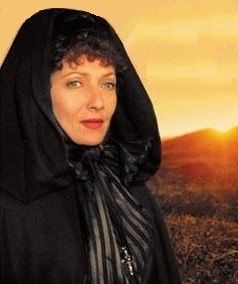
(babette10b.jpg)
She carries only a letter from Papin, explaining that she is a refugee from counter-revolutionary bloodshed in Paris, and recommending her as a housekeeper.
The sisters cannot afford to take Babette in, but she offers to work for free.
Babette serves as their cook for the next 14 years, producing an improved version of the bland meals typical of the abstemious nature of the congregation, and slowly gaining their respect.
Her only link to her former life is a lottery ticket that a friend in Paris renews for her every year.
One day, she wins the lottery of 10,000 francs.
Instead of using the money to return to Paris and her lost lifestyle, she decides to spend it preparing a delicious dinner for the sisters and their small congregation on the occasion of the founding pastor's hundredth birthday.
More than just a feast, the meal is an outpouring of Babette's appreciation, an act of self-sacrifice; Babette tells no one that she is spending her entire winnings on the meal.
The sisters accept both Babette's meal and her offer to pay for the creation of a "real French dinner".
Babette arranges for her nephew to go to Paris and gather the supplies for the feast.
The ingredients are plentiful, sumptuous and exotic, and their arrival causes much discussion among the villagers.
As the various never-before-seen ingredients arrive, and preparations commence, the sisters begin to worry that the meal will become a sin of sensual luxury, if not some form of devilry.
In a hasty conference, the sisters and the congregation agree to eat the meal, but to forgo speaking of any pleasure in it, and to make no mention of the food during the dinner.
Martine's former suitor, Lorens, now a famous general married to a member of the Queen's court, comes as the guest of his aunt, the local lady of the manor and a member of the old pastor's congregation.
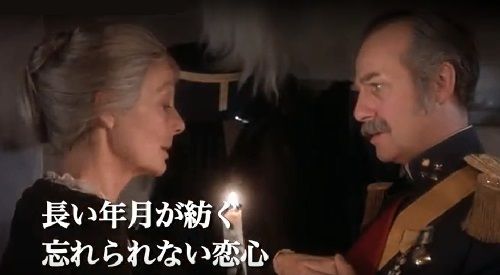
(babette14.jpg)
He is unaware of the other guests' austere plans, and as a man of the world and former attaché in Paris, he is the only person at the table qualified to comment on the meal.
He regales the guests with abundant information about the extraordinary food and drink, comparing it to a meal he enjoyed years earlier at the famous Café Anglais in Paris.
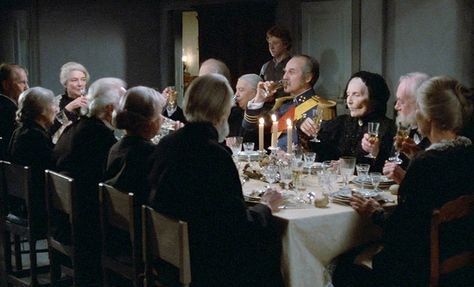
(babette05.jpg)
Although the other celebrants refuse to comment on the earthly pleasures of their meal, Babette's gifts break down their distrust and superstitions, elevating them physically and spiritually.
Old wrongs are forgotten, ancient loves are rekindled, and a mystical redemption of the human spirit settles over the table.
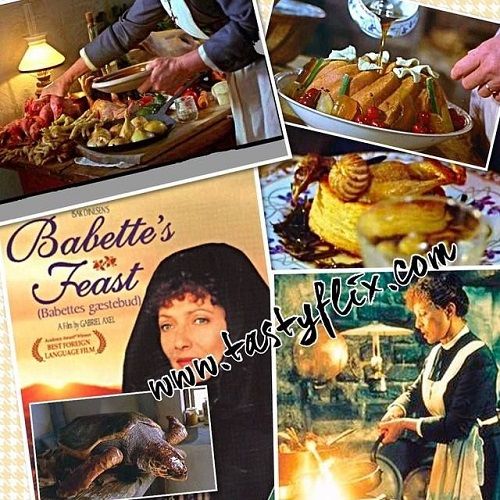
(babette03.jpg)
The sisters assume that Babette will now return to Paris.
However, when she tells them that all of her money is gone and that she is not going anywhere, the sisters are aghast.
Babette then reveals that she was formerly the head chef of the Café Anglais, and tells them that dinner for 12 there has a price of 10,000 francs.
Martine tearfully says, "Now you will be poor the rest of your life", to which Babette replies, "An artist is never poor."
Philippa then says: "But this is not the end, Babette. In Paradise you will be the great artist God meant you to be" and then embraces her with tears in her eyes saying: "Oh, how you will enchant the angels!", which is precisely how the short story ends.
SOURCE: "Babette's Feast" Wikipedia

So, Kato, how come you've picked up the above picture for me?

...'Cause you're a daughter of a clergyman. So, I thought you might be interested in the life of pious Protestant sisters Martine and Philippa---daughters of a pastor who founded his own Pietistic conventicle.
Well... my father didn't found his own conventicle, but the movie seems quite interesting by itself... So is that the reason you brought up this movie?
No, that's not the only reason I talk about this movie.
Then what else made you bring up this movie?
You see, Babette says, "An artist is never poor." I think so, too. They say, Art is long, life is short. Right?
Yes, you're telling me, Kato.
Since you're an artist, I've picked up another movie for you.

(concert03.jpg)
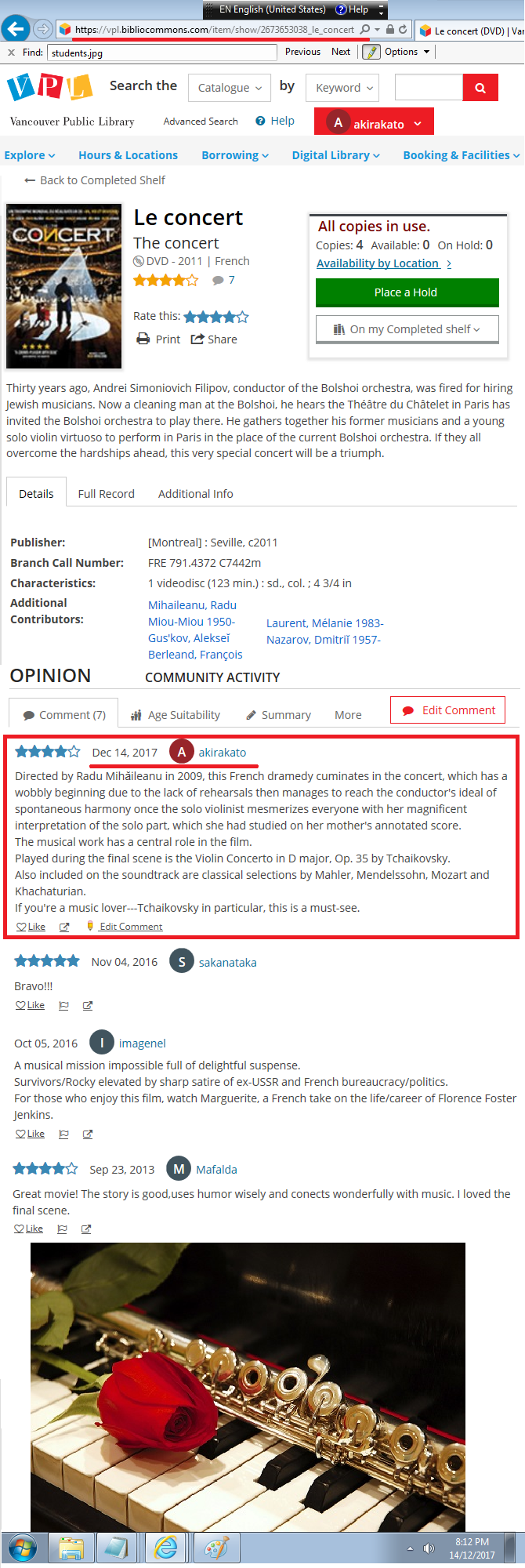
(lib71214a.png)
■"Enlarge"
■"Actual Page"

Directed by Radu Mihăileanu in 2009, this French dramedy cuminates in the concert, which has a wobbly beginning due to the lack of rehearsals then manages to reach the conductor's ideal of spontaneous harmony once the solo violinist mesmerizes everyone with her magnificent interpretation of the solo part, which she had studied on her mother's annotated score.
The musical work has a central role in the film.
Played during the final scene is the Violin Concerto in D major, Op. 35 by Tchaikovsky.
Also included on the soundtrack are classical selections by Mahler, Mendelssohn, Mozart and Khachaturian.
If you're a music lover---Tchaikovsky in particular, this is a must-see.

(tchai01.jpg)

As a violinist, you should be able to enjoy the above movie.

So, Kato, you remember I play the violin, huh?
Yes, of course, I do. In any case, there are ten people waiting to see "Bubette's Feast". So you should reserve the DVD as soon as possible.
Yes, I'll do it right away.
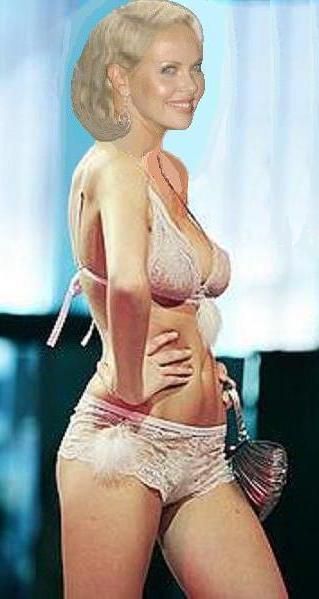
(dianelin3.jpg)

(laughx.gif)
(To be continued)
















※コメント投稿者のブログIDはブログ作成者のみに通知されます